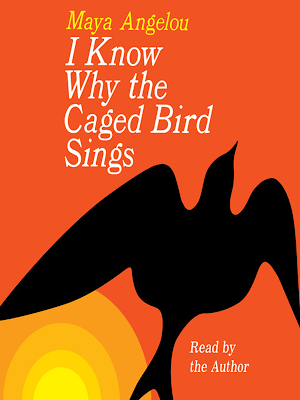I liked the innocence of the book. Maya Angelou describes her childhood in Stamps and her teenage move to San Francisco. Her writing evolves into maturity as the chapters progress. Her story in this book takes place during World War 2. Something is endearing about how she describes the life of a time so long gone away. These are stories that may seem lost but need to be remembered.
Moments in the book that I will remember
These are just a few of many -
Singing
I “read” half of this book via Audiobook, narrated by Maya Angelou herself. She does sing some of the hymns in the Audiobook, and I loved that aspect.
Church
There were three church-centered stories in the book.
“Preach it, I say preach it.”
Firstly, the humorous account of how Sister Monroe is “touched by the spirit” during Sunday Sermon and starts retorting “Preach It” following each of the Pastor's sentences. It concludes with her going up to the pulpit and smacking him. The narration by Maya Angelou and her wholehearted and energetic account was very memorable, including her mimicking Sister Monroe's and her brother's taunting “Preach It !!!”.
Secondly, Maya Angelou recounts how the cotton pickers would find time to attend Revival Meetings during the middle of the week despite having a hard day of work behind them and ahead of them the next day.
And lastly, there's the story of the visiting Pastor who would always visit her family and “eat all the brown bits” at dinner.
Describing San Francisco During WWII
Her migration from Stamps to San Francisco is so belabored. There is so much that has to happen for them to move. Many sacrifices were made so she could live with her mom.
Her description of San Francisco and the transition of the neighborhoods from Japanese to Black-owned businesses -
In the early months of World War II, San Francisco's Fill-more district, or the Western Addition, experienced a visible revolution. On the surface it appeared to be totally peaceful and almost a refutation of the term “revolution.” The Yakamoto Sea Food Market quietly became Sammy's Shoe Shine Parlor and Smoke Shop. Yashigira's Hardware metamorphosed into La Salon de Beauté owned by Miss Clorinda Jackson. The Japanese shops which sold products to Nisei customers were taken over by enterprising Negro businessmen, and in less than a year became permanent homes away from home for the newly arrived Southern Blacks.
Joe Louis - The Brown Bomber
It's another to the body, and it looks like Louis is going down.' My race groaned. It was our people falling. It was another lynching, yet another Black man hanging on a tree. One more woman ambushed and raped. A Black boy whipped and maimed. It was hounds on the trip of a man running through slimy swamps. It was a white woman slapping her maid for being forgetful.
Getting a Job on a Street Car
Maya Angelou was the first black person to work on street cars in San Francisco. It was the result of her determination and steadfastness that she was finally able to win her prize.
that’s what you want to do ? Nothing beats a trial than a failure. Give it everything you got. I’ve told you many times Can’t do is like Don’t care.
Baby
She hid the fact that she was pregnant until she was three weeks away from delivering the child.
Other Quotes
Sympathy is next to shit in the dictionary, and I can't even read.
All Knowledge is spendable currency depending on the market
Anything that works against you can also work for you - once you understand the principle of reverse
I like the following quote as it reveals a truth in life that once something terrible or difficult has happened, you do have tangible things to work with. Some definites can be addressed.
“When rain comes finally, washing away a low sky of muddy ocher, we who could not control the phenomenon are pressed into relief. The near-occult feeling: The face of being witness to the end of the world gives way to tangible things. Even if the succeeding sensations are not common, they are at least not mysterious.”

